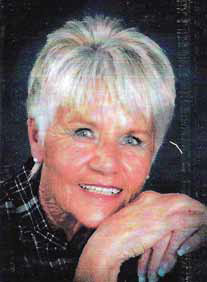Sheri Samson
A volunteer from the Junior Achievement program fields questions from Hawthorne Elementary students.
As Nevada legislation begins venturing into initiating financial literacy components into the classroom experience, the Junior Achievement programs of Northern Nevada have already been impacting students with that same emphasis for over 60 years. Receiving their local charter in 1956, this volunteer endeavor began as a way to inspire students into the preparation of financial responsibility. Business ownership and empowered successes of financial understanding have been presented throughout school environments, using quality business people within classroom settings.
Hawthorne Elementary School recently experienced this program, as several car loads of professional men and women drove in from Reno to spend a day sharing various age-appropriate lessons with these students. A stimulating array of professionally developed JA lessons range from kindergarten levels to twelfth grade courses. Each program is created with business models that create money-based interaction.
In Anna Gavin’s second grade class, students were prompted by volunteer, Audriana Moore, to create a donut business. Students were given written materials, allowing them to draw in their donut’s flavored ingredients. Many students were selecting colored sprinkles, while one student was creating a unique, chocolate-banana mix to be his top selling donut selection.
Mary Jo Gemelke’s fifth/sixth combo class was focused on a career quest, laid out as a game. With technology and professional sports mentioned as the student’s primary employment choices, creative thinking was used to engage a practical dialogue, as job evaluations were dissected by their JA presenter, Connor Mix.
Jamarr Covington’s fifth graders became innovators, as students were encouraged by JA’s Kyle Warren, to walk through an Innovation Nation program. Student Chesney Wilson presented an idea of having one fast food drive-through window designated by a mechanical arm that handed out napkins and straws. Student Willie Dennis was working on an idea of a net launcher, which could grasp handfuls of flying insects, rather than splattering them one-at-a-time. Student Cole Robinson presented on behalf of his innovative group by sharing a fire alarm that could “slap you awake during a fire”.
In every classroom, volunteer business consultants engaged the students into a fun lesson of economic value. President Len Stevens was also available to give his support of the rural efforts being made by the JA programs.
“We are like an in-house field trip to these students,” Stevens shared. “If we can change their mindset regarding money, employment and basic economics, then we have made the impact these students deserve.”
As the JA programs expand, so does the need within Nevada. Their literature states that Nevada remains below the national average in poverty rates, has the highest bankruptcy rate in the nation and reports the lowest in household and personal saving accounts. According to the American Savings Education Council, 61 percent of parents felt it was the responsibility of both the parent and the child’s school to teach personal finances, yet when asked only 28 percent of those parents admitted to teaching their children the value of money.


